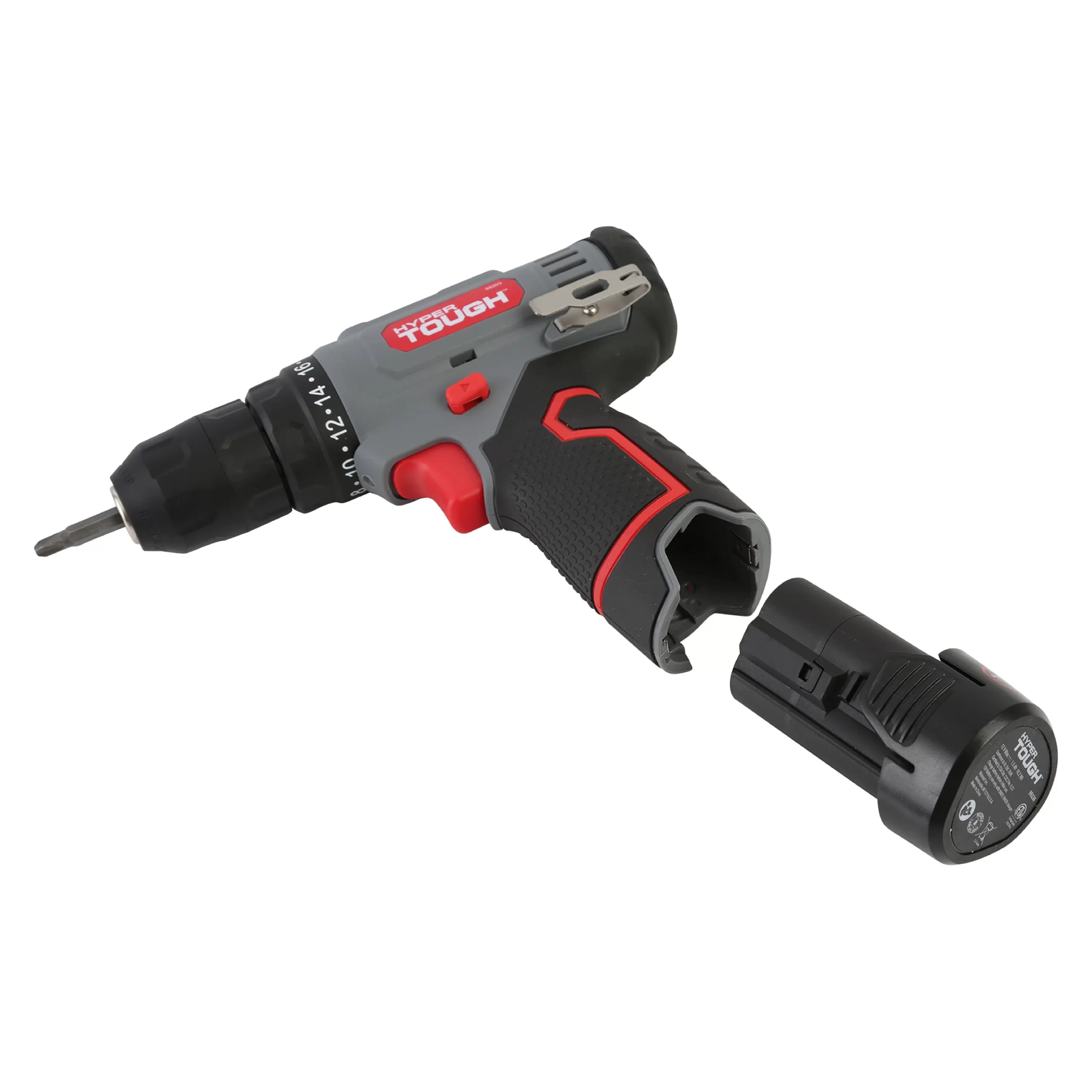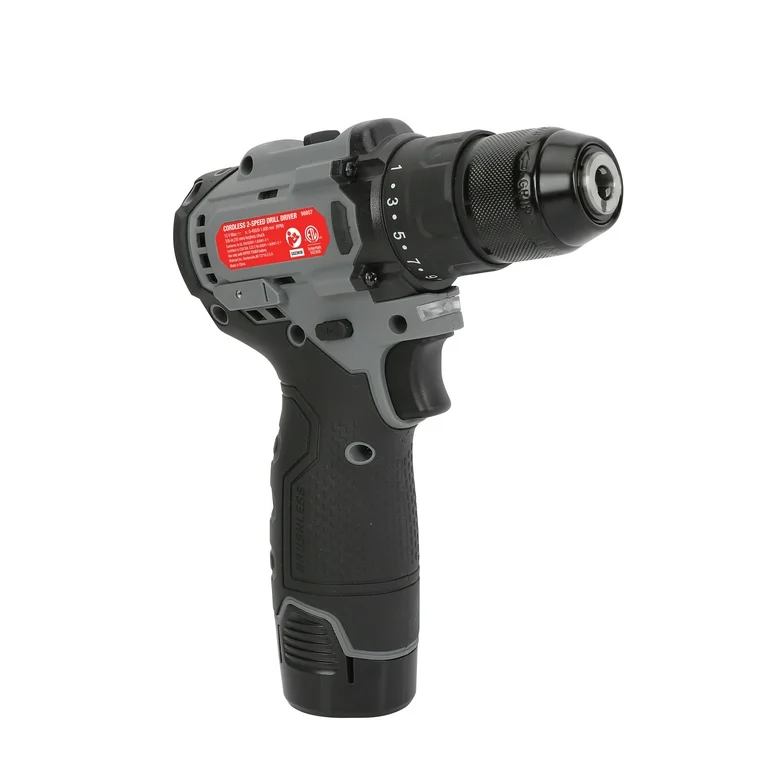
Brushless vs. Brushed Power Tools: What’s the Difference?
Understanding Brushless Power: Revolutionizing Energy Efficiency
The technological landscape is rapidly evolving. One significant advancement is brushless power technology. This innovation is transforming how energy is generated and consumed. It introduces numerous benefits over traditional systems. This blog explores what brushless power is and its numerous advantages, applications, and future potential.
Unleashing Power and Precision: The Revolution of Brushless Technology
In a rapidly evolving world driven by technology, the demand for efficiency and performance is at an all-time high. Enter brushless power technology, a groundbreaking advancement that is transforming industries from automotive to consumer electronics. With its efficient design and enhanced performance, brushless motors and components are quickly becoming the preferred choice for engineers and hobbyists alike.
Gone are the days of traditional brushed motors that rely on friction and wear. Brushless technology eliminates these concerns by utilizing electronic commutation, resulting in motors that boast longer lifespans, increased reliability, and reduced maintenance. This means fewer breakdowns and a significant reduction in operational costs. Whether you’re powering an electric vehicle, a drone, or a home appliance, brushless systems provide the strength and longevity needed to keep up with today’s fast-paced lifestyle.
Additionally, brushless motors are known for delivering superior power-to-weight ratios. They can achieve high speeds and torque with remarkably less energy consumption, making them perfect for high-performance applications. This efficiency not only contributes to reduced energy bills but also minimizes the environmental impact—an essential consideration as we move towards sustainability.
As we dive deeper into the world of brushless power, it’s vital to understand its applications, benefits, and the technology behind it. This blog will explore how brushless systems are setting new standards for performance, the innovative manufacturing processes involved, and the broad range of uses that signal a future dominated by this remarkable technology. Get ready to discover why brushless is not just a trend, but a transformative shift in how we harness power in our daily lives.

What Is Brushless Power?
Brushless power refers to a type of electric motor design without brushes. Traditional motors rely on brushes to transfer electrical energy. However, brushes can wear out, leading to maintenance issues. Brushless motors operate using electromagnetic fields generated by electronic controllers. This design enhances efficiency and performance significantly.
Moreover, brushless power technology is particularly known for its longevity. These motors can operate for extended periods without requiring major repairs. Since there are no brushes to replace, this reduces downtime. As a result, businesses and consumers save money on maintenance.
The need for energy efficiency has never been greater. As the world shifts towards sustainable solutions, brushless power emerges as a key player. Many industries are adopting this technology to meet their energy demands. Consequently, brushless systems are becoming more prevalent in everyday applications.
Advantages of Brushless Power Technology
Brushless power technology offers several advantages over traditional motors. First, they have enhanced efficiency. Lower energy consumption translates to reduced electricity costs. This benefit is crucial for both businesses and consumers alike.
Second, these motors generate less heat. Reduced heat generation means prolonged service life. An extended lifespan reduces the frequency of replacements. This factor makes brushless motors an attractive option for various industries.
Additionally, brushless motors exhibit superior performance. They provide higher torque and faster response times. This capability enables them to handle demanding applications seamlessly. Industries relying on precision and reliability benefit immensely from this technology.
Moreover, brushless motors operate quietly. This characteristic is particularly advantageous in noise-sensitive environments. Reduced noise enhances comfort in settings such as homes or offices.
Another significant advantage is their environmental impact. Brushless power technology promotes energy conservation. Lower energy consumption results in fewer greenhouse gas emissions. Thus, this innovation aligns perfectly with global sustainability goals.

Applications of Brushless Power Technology
Brushless power technology has numerous applications across various industries. In the automotive sector, this technology plays a crucial role. Electric vehicles (EVs) often utilize brushless motors for their performance and efficiency. As the demand for EVs grows, brushless technology will become even more crucial.
Moreover, brushless motors are instrumental in the aerospace industry. These motors power drones and other unmanned aerial vehicles. Their lightweight design and efficiency make them perfect for flight applications. Consequently, brushless technology contributes to advancements in aviation.
In the manufacturing sector, brushless motors are widely used. Automated machinery often employs brushless technology for precision tasks. The reliability and consistency of these motors improve production processes. This aspect increases the overall efficiency of manufacturing operations.
Furthermore, brushless power technology finds applications in home appliances. Products such as vacuum cleaners and kitchen gadgets utilize brushless motors. These appliances benefit from diminished noise and energy efficiency. This trend further promotes consumer interest in brushless-powered devices.
Lastly, the renewable energy sector harnesses brushless power technology extensively. Wind turbines often use brushless generators. Their efficiency and durability are paramount for sustainable energy production.

The Future of Brushless Power Technology
The future of brushless power technology is bright. Continuous innovation in electronics and materials enhances motor performance. Researchers focus on developing better control algorithms. These advancements will further optimize motor efficiency.
Moreover, as renewable energy becomes more prominent, brushless motors will play a critical role. Advancements in energy storage and conversion will increase the demand for these systems. Electric vehicles, for instance, will continue to evolve with improved brushless technology.
Automated systems will also benefit immensely from this evolution. The rise of smart homes and factories will require efficient motor solutions. Brushless technology aligns well with these emerging trends. Hence, industries will increasingly rely on it for future applications.
Additionally, the integration of artificial intelligence may enhance brushless motors’ performance. AI can optimize motor control in real-time. This capability can lead to significant energy savings and improved efficiency.
Companies investing in brushless technology will likely see substantial returns. The global push for sustainable solutions is driving demand. Adoption of brushless motors across various sectors is expected to grow exponentially.
Challenges In Adopting Brushless Power Technology
While brushless power technology offers numerous benefits, there are challenges in its adoption. Initial costs can be higher than traditional motors. The investment in electronics and advanced components can deter some businesses. However, long-term savings often outweigh upfront costs.
Another hurdle is the need for specialized knowledge. Installing and maintaining brushless motors requires specific skills. Not all technicians are familiar with this technology. Therefore, companies must invest in training programs.
Moreover, the transition period can be challenging. Organizations using traditional systems may face operational disruptions. Shifting to brushless technology involves careful planning and execution. It is essential to minimize downtime during this transition.
Furthermore, supply chain issues can impact availability. As demand for brushless components rises, shortages may occur. Companies must navigate these challenges to ensure a smooth transition.
Despite these obstacles, the shift towards brushless power technology is inevitable. Growing environmental concerns will foster innovation. Consequently, challenges will be met with creative solutions, paving the way for widespread adoption.

Comparison: Brushless Power vs. Brush Motors
Understanding the differences between brushless power and traditional brush motors is essential. Brush motors use brushes and commutators to function. This design leads to friction, which generates heat and wear over time.
On the other hand, brushless motors eliminate these components. This design results in reduced friction and heat. Consequently, brushless motors exhibit improved efficiency and longevity. These characteristics make them ideal for demanding applications.
Additionally, brushless motors offer superior control. The electronic controllers enable precise speed and torque adjustments. This capacity is critical in applications requiring accuracy and reliability. In contrast, brush motors lack this level of control.
Maintenance requirements also vary significantly between the two motor types. Brush motors require regular brush replacement. This fact can lead to higher maintenance costs over time. By comparison, brushless motors require minimal maintenance.
Ultimately, businesses must evaluate their specific needs when choosing between these technologies. While brush motors may have lower initial costs, brushless motors provide substantial long-term benefits. The decision will depend on various factors, including application requirements and budget constraints.
Conclusion: The Promise of Brushless Power Technology
In summary, brushless power technology is reshaping the energy landscape. Its numerous benefits make it a compelling choice for various applications. From automotive to home appliances, the impact is far-reaching.
As industries continue to adopt brushless systems, the future looks promising. Continuous innovation will enhance motor performance and efficiency. Moreover, as the world moves toward sustainability, brushless power will play a pivotal role.
Challenges in adoption exist, but they are not insurmountable. As organizations become familiar with this technology, the transition will become smoother. Additionally, increased training and support will facilitate widespread adoption.
Ultimately, the advantages of brushless power technology are too significant to ignore. Enhanced efficiency, longevity, and reduced environmental impact make it an ideal choice. Businesses and consumers alike will benefit from embracing this revolutionary technology.
Brushless power technology is set to dominate the future of electric motors. The momentum behind this innovation is increasing. As it becomes more accessible, it will fundamentally change how energy is harnessed. By focusing on efficiency and sustainability, brushless power technology is truly a game-changer.
This comprehensive understanding of brushless power highlights its importance in today’s energy landscape. Motivating the transition to brushless technology will drive future advancements in productivity and environmental stewardship. As industries and consumers alike recognize its value, the adoption will soar.

